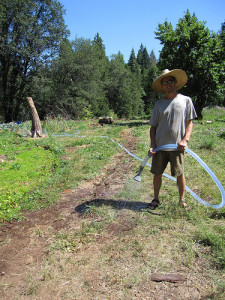Water
go.ncsu.edu/readext?244368
en Español / em Português
El inglés es el idioma de control de esta página. En la medida en que haya algún conflicto entre la traducción al inglés y la traducción, el inglés prevalece.
Al hacer clic en el enlace de traducción se activa un servicio de traducción gratuito para convertir la página al español. Al igual que con cualquier traducción por Internet, la conversión no es sensible al contexto y puede que no traduzca el texto en su significado original. NC State Extension no garantiza la exactitud del texto traducido. Por favor, tenga en cuenta que algunas aplicaciones y/o servicios pueden no funcionar como se espera cuando se traducen.
Português
Inglês é o idioma de controle desta página. Na medida que haja algum conflito entre o texto original em Inglês e a tradução, o Inglês prevalece.
Ao clicar no link de tradução, um serviço gratuito de tradução será ativado para converter a página para o Português. Como em qualquer tradução pela internet, a conversão não é sensivel ao contexto e pode não ocorrer a tradução para o significado orginal. O serviço de Extensão da Carolina do Norte (NC State Extension) não garante a exatidão do texto traduzido. Por favor, observe que algumas funções ou serviços podem não funcionar como esperado após a tradução.
English
English is the controlling language of this page. To the extent there is any conflict between the English text and the translation, English controls.
Clicking on the translation link activates a free translation service to convert the page to Spanish. As with any Internet translation, the conversion is not context-sensitive and may not translate the text to its original meaning. NC State Extension does not guarantee the accuracy of the translated text. Please note that some applications and/or services may not function as expected when translated.
Collapse ▲
Image by Fisherman’s Daughter CC FY 2.0
You are raising and sharing fresh produce to make people healthy – Be sure the food you are growing is safe!
If your water comes from a municipal source with a water treatment plant then they do regular water testing. You may want to obtain a copy of the test results and keep it for your records.
Before deciding to use water from a well, or from rain water harvesting have the water tested for “generic E. coli.” to quantify the level present (not just present or absent). Contact the lab for specific instructions on collecting and submitting a sample. Retest the water seasonally to monitor the water quality. Tests range in price from $20 to $70 depending on your location and the lab.
Check out the water testing tips and a list of water testing laboratories in NC.
If the test identifies issues with your water quality, contact your local cooperative extension agent for guidance on how to remediate. Your options might include:
- Accumulating the water in a rain barrel or cistern and treating the with Chlorine (4 ppm)
- Installing a remediation system that uses chlorine, hydrogen peroxide, ozone or UV light
Do not use water pumped directly from a stream.
To minimize problems be sure to apply water directly to the soil (to not spray into the air, or onto the leaves and fruits of plants).


